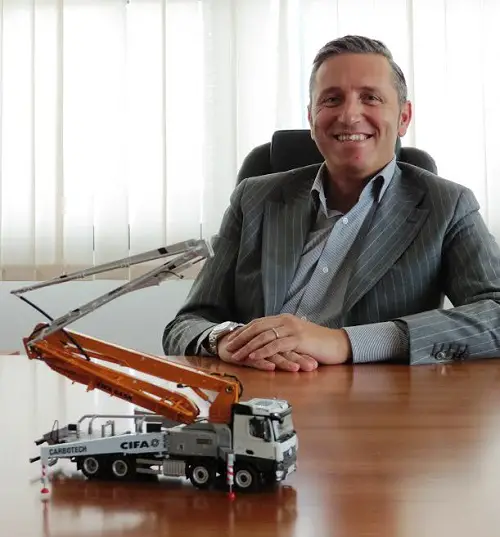According to a report by Research and Markets, the African Concrete Batching Plant industry is projected to reach $35.6 Million by 2023. In Africa, concrete batching plants with medium capacity accounted for majority of the market volume share due to increased construction activities and wide usage across various infrastructural projects.
Medium capacity concrete batching plant market is expected to maintain its market dominance throughout the forecast period in-terms of market volumes. Low capacity batching plant would also be used in the remote areas where infrastructure gap is huge. Amongst all the verticals, the infrastructure vertical accounts for key share in the overall Africa batching plant market. Buildings are the other key revenue contributing vertical.
Cifa S.p.A. is a company that for 90 years has been designing, producing and distributing innovation in the construction field. For a long time it has been proposing itself as full liner with a complete range of products for production, transportation, laying of concrete.
CIFA constantly invests in research and development of products and services and in the absolute value of quality. Construction Review had an interview with Marco Polastri, sales, after sales & marketing director, Cifa S.p.A on their take on the current concrete batching plant industry in Africa.
-
What’s Cifa’s take on the current batching plant market in Africa?
In our history we have sold more than 100 batching plants in almost all the countries belonging to Africa. The types of products installed are both mobile and stationary which makes Africa a big and important market for us.
-
Are there any new technologies in the batching plants used in Africa?
In order to satisfy the requests coming from the market, we have designed a series of plants, called Fivetech, totally mobile with hot-galvanized structures and reaching a production up to 130 cubic meters of concrete per hour. This was done to speed up the installation time of the plants, thus minimizing the logistic and construction costs paid by the customer.
-
If yes, what are the challenges experienced so far with regard to installation and maintenance?
Thanks to a highly professional training to the operators that is made by our qualified technicians during the installation of the product and thanks to the on-line assistance that we guarantee continuously, we have succeeded in significantly reducing the problems connected to non-perfect and regular system maintenance. Thanks also to our large warehouse; we guarantee the supply of any spare parts in a very short time
-
What can be done to address these challenges?
We believe that the concrete plant operators must be constantly instructed and updated on the correct functions of the plant automation system. This is why we believe that courses dedicated to plant operators that we organize in our company are fundamental so that the person managing the plant is a competent and up-to-date figure.
-
Does Cifa have any future plans for Africa?
We believe that the African market is fundamental for the growth of our company. We are trying to do everything possible to increase our market share by developing high quality products completely manufactured in our factories.
In this way, in addition to having complete control of the production chain, we are able to supply completely customized products that fully satisfy the customers’ requests. Some countries where we sold our plants include: Nigeria, Ghana, Ethiopia, Kenya and Burundi.
On September 19, 2008 CIFA became part of the Chinese Zoomlion Group: an epochal passage that marked the history of the Italian company and definitively launched it into a global scenario.
The integration of CIFA in Zoomlion takes shape on the one hand in the decision to involve Italian management in guiding the corporate functions of the group’s concrete division, on the other hand in the powerful financial incentive to support sales determined by Zoomlion Capital, finally by the decisive a push towards research and development, with the experimentation of new materials and process and product innovation, and the further strengthening of production facilities and commercial ones all over the world.

Leave a Reply